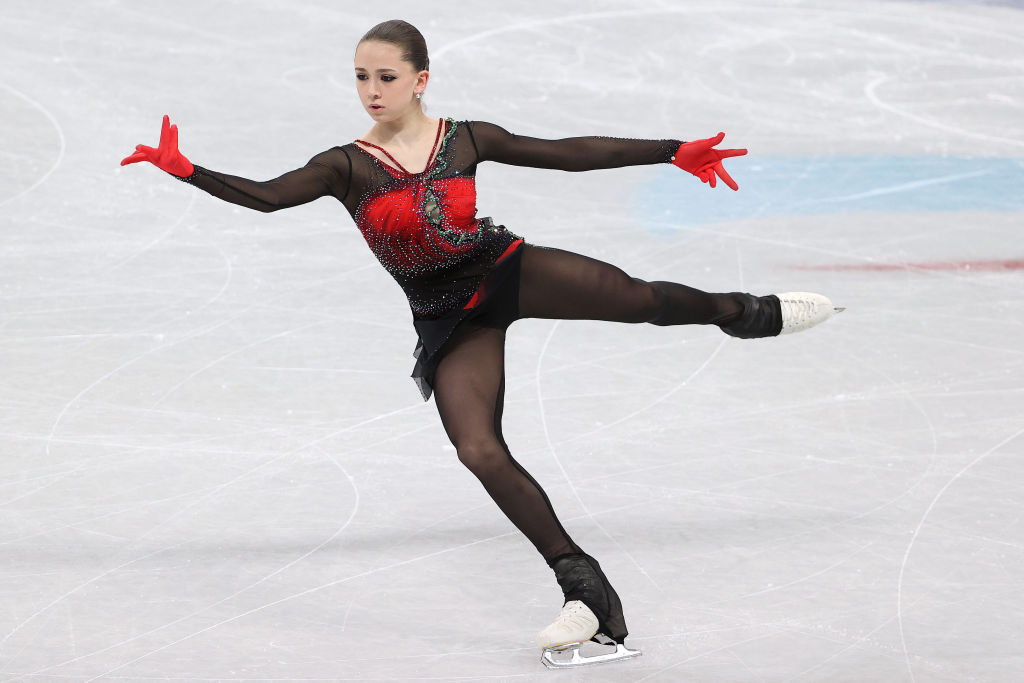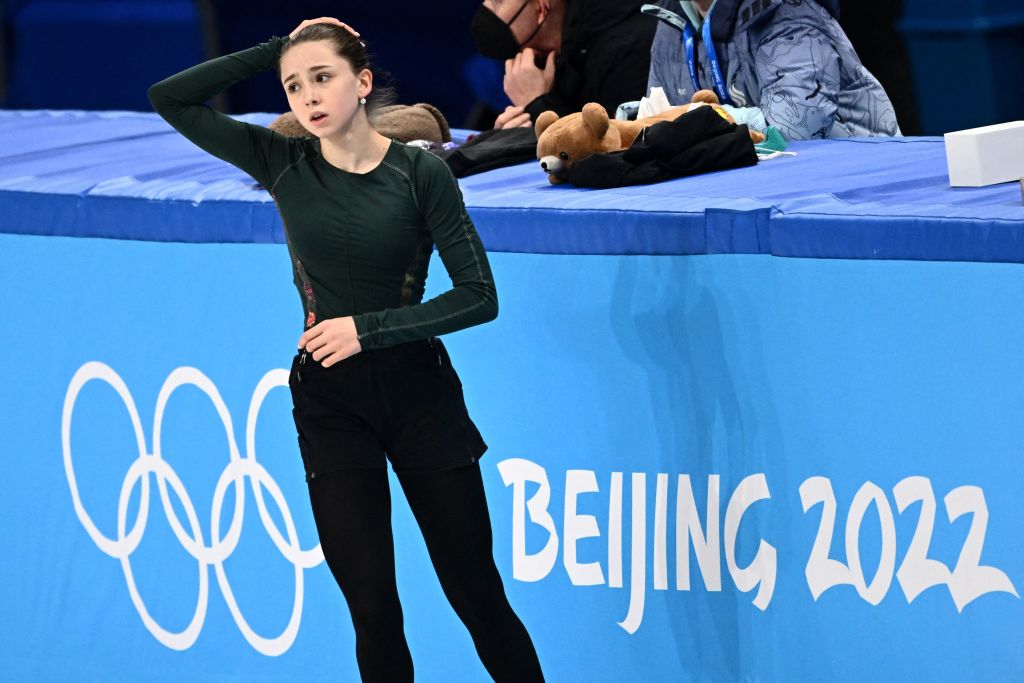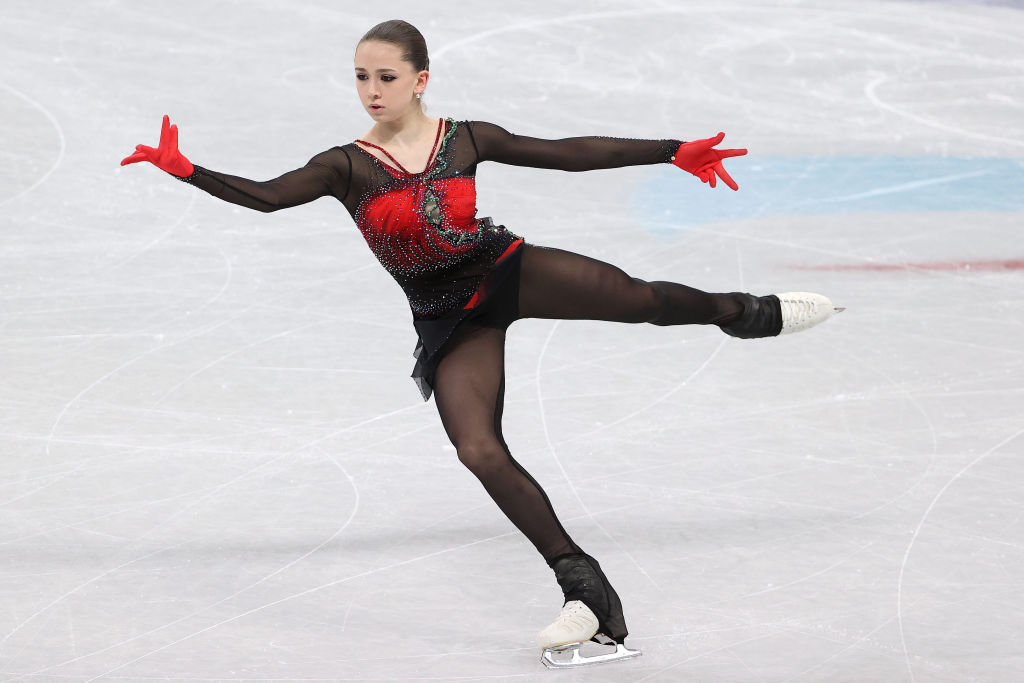
The organization that is leading the anti-doping efforts at the Beijing Olympics has confirmed that 15-year-old Russian figure skater Kamila Valieva tested positive for a banned substance. The International Testing Agency, in a statement Friday, also revealed that Russian anti-doping officials had cleared Valieva to compete in the women’s figure skating event, despite initially issuing a provisional suspension.
The ITA said it was not clear why Russian officials reversed the provisional ban on Valieva. However, the anti-doping watchdog said it was filing an emergency appeal with the Court of Arbitration for Sport. The Olympic women’s single skating event is set to begin on Tuesday.
The ITA’s announcement provides the first official accounting of a fast-moving doping scandal that has engulfed figure skating at the 2022 Winter Games. A Russian newspaper was the first to report the doping violation, and Valieva’s identity, but the International Skating Union (ISU), the sport’s governing body, and the International Olympic Committee (IOC) have not commented, citing ongoing legal issues.
In response, Dmitri Svishev, a member of the Russian parliament’s committee for sport and tourism told state-funded news agency RT that the doping allegation “might be a mistake,” while Kremlin spokesperson Dmitri Peskov told reporters at a briefing in Moscow that “We are sure this is some kind of misunderstanding,” while urging Valieva to “Hold your head up, you’re a Russian. Go proudly and beat everyone.”
In its first statement addressing the report, the Russian Anti-Doping Agency (RUSADA), which was responsible for collecting the sample and receiving the report, said the Russian skaters were tested at the country’s national championships on Dec. 25, and the samples sent to a World Anti-Doping Agency (WADA) accredited lab in Stockholm, Sweden. The results of those tests, including the positive test, were not reported to RUSADA until Feb. 7, the day of the final competition of the team figure event in Beijing.
The incident could escalate into a prolonged legal battle, if the U.S. decides to prosecute those involved under the American Rodchenkov Act, a 2020 law that calls for fines or jail time for people whose actions have negatively affected U.S. athletes’ results. In the team event, which the Russian athletes won, U.S. skaters earned silver and the Japanese team bronze.
The case increases scrutiny on a country already under the spotlight for doping violations. The Russian anti-doping program has been sanctioned for state-sponsored doping violations by WADA, which had ruled the Russian agency as non-compliant. Because of that, the Court of Arbitration for Sport issued a two-year ban on Russian athletes competing under their own flag and with their national anthem at international events, including the Tokyo and Beijing Olympics. Russian athletes are competing as the Russian Olympic Committee (ROC) as a result.
Valieva’s case could have huge implications for the results of figure skating at the Beijing Olympics, not only for the outcome of the team event but for the women’s event as well. Valieva made history in leading the Russians to gold in the team competition by becoming the first female skater to land a quadruple jump at the Olympics. She is also expected to bring home gold for the ROC in the women’s event.
What we know about Kamila Valieva’s positive test

The controversy began Wednesday when reports emerged that the medals ceremony for the team figure skating event, originally scheduled for Tuesday, was delayed due to “legal issues.”
Then, the Russian newspaper RBC reported Valieva had tested positive for the drug trimetazidine, which is a heart medication generally prescribed to patients with angina to maintain blood flow and prevent blockages that can stop the heart. Officials with the ISU and IOC refused to confirm the report.
On Feb. 10, Valieva was seen training at her assigned skating session in Beijing—leading to questions about how she could be taking to the ice if she tested positive for a banned substance.
The ITA statement Friday confirmed the events described in the RUSADA statement, although the ITA mentioned Valieva by name and RUSADA referred to only “athlete.” The sample in question was collected from Valieva on Dec. 25 during the 2022 Russian Figure Skating Championships and sent to the lab in Stockholm for testing. RUSADA says it was not informed of the failed test until Feb. 7. In its statement, the Russian anti-doping agency cites staff shortages in accounting for the delay — “the delay in analysis and reporting by the Laboratory was caused by another wave of COVID-19, an increase in illness among Laboratory staff and quarantine rules.”
Based on the positive test, RUSADA imposed a provisional suspension on Valieva. Because the sample was collected before Jan. 27, the case does not fall under the immediate authority of the IOC’s anti-doping program. Valieva skated in the women’s short program portion of the team event on Feb. 6, and again in the free program on Feb. 7.
On Feb. 9, Valieva challenged the suspension at a disciplinary hearing. That evening, RUSADA lifted the suspension, the ITA said. RUSADA has not provided its reasoning for lifting the suspension but the Russian agency said it immediately initiated an investigation of Valieva’s “personnel” to determine what role, if any, others played in the incident.
Trimetazidine’s history in doping
The drug at the center of the controversy has had a darker history in recent years, as a doping agent by athletes looking for an extra edge in endurance, whether for training or for competition.
Since 2014, the World Anti-Doping Agency has listed trimetazidine as a metabolic modulator for that reason, since it can give athletes an unfair chemical advantage. Chinese swimmer Sun Yang served a three-month ban in 2014 after testing positive for the drug, while Russian bobsledder Nadezhda Sergeeva was disqualified from the 2018 Olympics and served an eight-month ban for the same drug.
It’s unclear whether Valieva has a heart condition or has another reason for legitimately using the drug. If either is the case, she would also have had to receive a special dispensation or medical allowance to use the medication.
What happens next for Kamila Valieva and the Olympics

The skaters who participated in the team event have yet to receive their medals, since the ceremony, scheduled for Feb. 8 in Beijing, has been postponed indefinitely. In explaining the delay at its regular press briefing on Feb. 9, IOC spokesperson Mark Adams would only say that “a situation arose today on short notice which requires legal consultation with the ISU… It’s an emerging issue, and I can’t add very much.”
Valieva’s case is also complicated by the fact that she is considered a “protected person” under the World Anti-Doping Code because she is not yet 16. That means more focus on her coaches and support team who advised her, as she may be too young to fully appreciate and implement the anti-doping rules and policies. The maximum ban is shorter for a protected athlete, and at the very least may involve a reprimand, depending on the extent of her role and knowledge of the violation.
Valieva’s status also meant that she was exempted from the normal public disclosures that happen following a positive drug test. ITA said it was identifying Valieva because her name had already been reported in the media, and because of “heightened public interest.”
Now Valieva’s case will go before the Court of Arbitration in Sport. The ITA said that a decision on the skater’s case was needed before the women’s competition begins next week.
If the Court finds against Valieva, it could disqualify the ROC skating team, stripping them of the gold. That would mean the U.S. earns gold, current bronze medal winners Japan would be elevated to silver, and fourth-place Canada the bronze.
Depending on the process, and the Court’s determination of how much agency Valieva had in the incident, it could also prevent her from competing in the women’s event that she was widely expected to win.
Olympic champion Katarina Witt expressed support for Valieva, and called for accountability from the adults on her support team “The responsible adults should be banned from the sport forever!!!” she wrote on her Facebook page. “What they knowingly did to her, if true, cannot be surpassed in inhumanity and makes my athlete’s heart cry infinitely.”
Former U.S. skater Adam Rippon, a bronze medalist at the 2018 Olympics who now coaches, called the situation “heartbreaking” Friday. “This young girl is just 15,” Rippon tweeted. “She’s a minor. The adults around her have completely failed her. They’ve put her in this awful situation and should be punished.”
Valieva’s history-making quadruple could also come with an asterisk, if the reports are confirmed that she has been using a banned substance without receiving a medical exemption.
More Must-Reads from TIME
- Cybersecurity Experts Are Sounding the Alarm on DOGE
- Meet the 2025 Women of the Year
- The Harsh Truth About Disability Inclusion
- Why Do More Young Adults Have Cancer?
- Colman Domingo Leads With Radical Love
- How to Get Better at Doing Things Alone
- Michelle Zauner Stares Down the Darkness
Contact us at letters@time.com